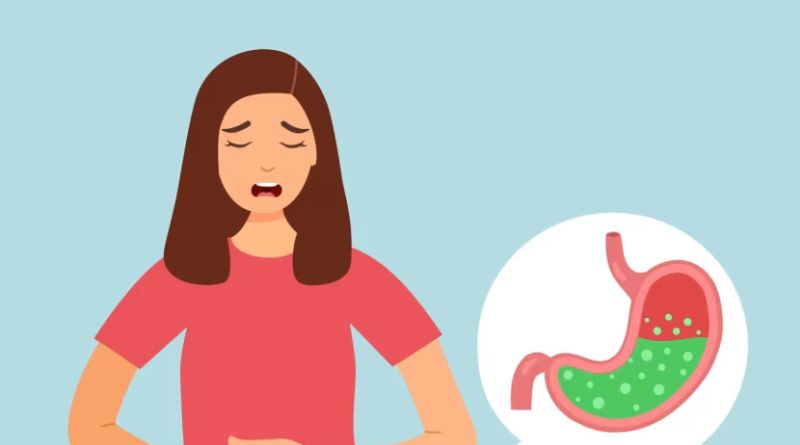Food poisoning is a common ailment that affects millions of people worldwide each year. It occurs when you consume food or drink contaminated with harmful bacteria, viruses, parasites, or toxins. While food poisoning is usually not life-threatening, its symptoms can be incredibly uncomfortable and inconvenient. One of the most common questions people ask when they suspect food poisoning is, “How long does food poisoning last?”
In this article, we’ll explore the typical duration of food poisoning, the factors that can influence how long it lasts, what you can do to manage symptoms, and when it’s necessary to seek medical attention.
Table of Contents
What is Food Poisoning?
Food poisoning is caused by eating food that has been contaminated by harmful microorganisms or toxins. These pathogens can be introduced to food at any point during preparation, handling, storage, or cooking. The most common causes of food poisoning include:
- Bacteria: Salmonella, E. coli, Listeria, and Campylobacter are some of the most well-known bacterial culprits.
- Viruses: Norovirus and Hepatitis A can cause foodborne illness.
- Parasites: Protozoa like Giardia and roundworms can also contaminate food.
- Toxins: Some types of bacteria, like Staphylococcus aureus or Clostridium botulinum, produce toxins that cause food poisoning.
Once ingested, these harmful agents can lead to a variety of symptoms, ranging from mild stomach upset to severe dehydration and other serious health problems.
How Long Does Food Poisoning Last?
The duration of food poisoning can vary significantly depending on several factors, including the type of contamination, the severity of the infection, and the overall health of the individual. In general, most cases of food poisoning last anywhere from a few hours to 10 days.
Here’s a breakdown of what you can expect based on different factors:
1. Mild Food Poisoning (Bacterial or Viral)
For mild cases caused by common bacteria like Salmonella, E. coli, or viruses such as norovirus, the symptoms typically start within 6 to 24 hours after consuming contaminated food. In most cases, the symptoms last for 1 to 3 days, with some people recovering within 24 to 48 hours.
The symptoms of mild food poisoning usually include:
- Nausea
- Vomiting
- Diarrhea
- Abdominal pain or cramping
- Low-grade fever
During this period, staying hydrated is essential, as vomiting and diarrhea can lead to dehydration. If you have mild food poisoning, you may experience an improvement in symptoms within 1 to 3 days, and most people recover fully without the need for medical intervention.
2. Moderate to Severe Food Poisoning
Moderate to severe cases of food poisoning, often caused by more aggressive bacteria or toxins, can last longer. The symptoms may persist for 3 to 7 days, and some people may experience more severe dehydration or other complications. Common bacteria that can cause more severe food poisoning include:
- Campylobacter: Symptoms usually last for 2 to 5 days, but some people may have lingering digestive issues like cramping or diarrhea for several weeks.
- Shigella: The illness caused by Shigella can last 5 to 7 days. In some cases, antibiotics may be prescribed to reduce the duration of symptoms.
- Clostridium perfringens: This bacteria often causes symptoms that last 24 to 48 hours but can cause severe cramping and diarrhea for some people.
Symptoms associated with moderate to severe food poisoning may include:
- Intense abdominal cramps
- High fever (above 101.5°F or 38.6°C)
- Persistent diarrhea (sometimes with blood or mucus)
- Severe vomiting
- Dehydration (dry mouth, dizziness, dark urine)
If you experience these symptoms, particularly if they last longer than a few days or worsen over time, it’s important to consult a healthcare provider.
3. Food Poisoning from Toxins
In some cases, food poisoning is caused by toxins produced by bacteria, such as Staphylococcus aureus or Clostridium botulinum. These toxins can cause sudden and intense symptoms, often appearing within a few hours of consuming contaminated food. The duration of symptoms depends on the severity of the toxin:
- Staphylococcus aureus toxin: Symptoms can appear rapidly (within 30 minutes to 6 hours) and usually last for 24 to 48 hours. Symptoms include vomiting, stomach cramps, and diarrhea.
- Botulism (Clostridium botulinum): This is a rare but serious form of food poisoning. Symptoms typically appear 12 to 36 hours after consumption and may last for several days. Botulism can be life-threatening and requires immediate medical attention.
4. Food Poisoning from Parasites
Parasites like Giardia or roundworms can cause food poisoning symptoms that last weeks to months, depending on the type of infection. These parasitic infections often cause longer-lasting digestive issues, such as:
- Persistent diarrhea
- Bloating
- Gas
- Fatigue
- Weight loss
Treatment for parasitic infections usually requires medication, so it’s important to consult a healthcare professional if you suspect you have a parasitic infection.
Factors That Affect the Duration of Food Poisoning
While the general timeline for food poisoning is fairly consistent, several factors can influence how long your symptoms will last:
1. Type of Pathogen
The specific type of pathogen causing your food poisoning plays a major role in how long your illness lasts. Bacterial infections caused by E. coli or Salmonella typically resolve within a few days, while viral infections like norovirus or foodborne illnesses caused by toxins may last for a longer period.
2. Your Immune System
A healthy immune system can help your body fight off foodborne pathogens more efficiently. If you have a weakened immune system due to conditions like diabetes, cancer, or other chronic diseases, food poisoning may last longer and can sometimes be more severe.
3. Age
Children, elderly individuals, and pregnant women may experience more severe symptoms or complications from food poisoning. For example, young children are more prone to dehydration, which can make the symptoms of food poisoning last longer.
4. Treatment
Some people may take medications, such as antibiotics, to help treat bacterial infections, while others may require IV fluids for dehydration. Those who take measures to manage their symptoms, like staying hydrated and resting, may recover faster than those who don’t.
What to Do While Recovering from Food Poisoning
If you experience food poisoning, it’s important to rest and stay hydrated. Dehydration can be a major concern, especially when vomiting or diarrhea is present. Here are some steps you can take to recover:
- Drink plenty of fluids: Water, clear broths, or oral rehydration solutions can help replace lost fluids and electrolytes.
- Eat bland foods: If you feel up to eating, try bland foods like crackers, rice, bananas, and toast (often referred to as the BRAT diet).
- Avoid dairy, caffeine, and alcohol: These can irritate your stomach and worsen dehydration.
- Rest: Give your body the time it needs to heal by getting plenty of rest.
When to Seek Medical Attention
While most cases of food poisoning resolve on their own, some symptoms may require medical intervention. Seek immediate medical attention if you experience:
- Severe dehydration (dry mouth, dizziness, little or no urine)
- Blood in your vomit or stool
- High fever (over 101.5°F or 38.6°C)
- Prolonged diarrhea (lasting more than 3 days)
- Difficulty swallowing or breathing
Children, pregnant women, the elderly, and those with weakened immune systems should also consult a healthcare provider sooner rather than later if food poisoning symptoms occur.
Frequently Asked Questions (FAQs)
1. Can food poisoning last more than a week?
- Yes, in some cases, food poisoning can last for up to a week or longer, particularly if caused by certain bacteria, viruses, or parasites. If symptoms persist for more than a week, consult a doctor for further evaluation.
2. How do I know if I have food poisoning or a stomach virus?
- The symptoms of food poisoning and stomach viruses can be similar, including nausea, vomiting, diarrhea, and abdominal cramps. However, food poisoning is typically caused by contaminated food, while a stomach virus is usually spread through close contact with infected people or contaminated surfaces. If you suspect food poisoning, review what you’ve eaten recently and consider any potential sources of contamination.
3. Can food poisoning get worse over time?
- In some cases, food poisoning can worsen if left untreated, especially if dehydration becomes severe or if an infection is not properly managed. It’s important to seek medical advice if symptoms worsen or if you feel unwell for more than a couple of days.
4. Is there a cure for food poisoning?
- There’s no specific cure for food poisoning, but most cases resolve on their own with rest and hydration. In more severe cases, antibiotics or other medications may be prescribed by a healthcare provider.
Conclusion
The duration of food poisoning can vary, but most cases last from a few hours to several days, depending on the cause of the infection. While the symptoms can be uncomfortable, most people recover without the need for medical treatment. However, if symptoms are severe or persistent, it’s important to seek medical help. In the meantime, staying hydrated, resting, and following proper self-care can help you feel better more quickly. Remember, prevention is key—always ensure that your food is properly stored, handled
, and cooked to minimize the risk of foodborne illness.



